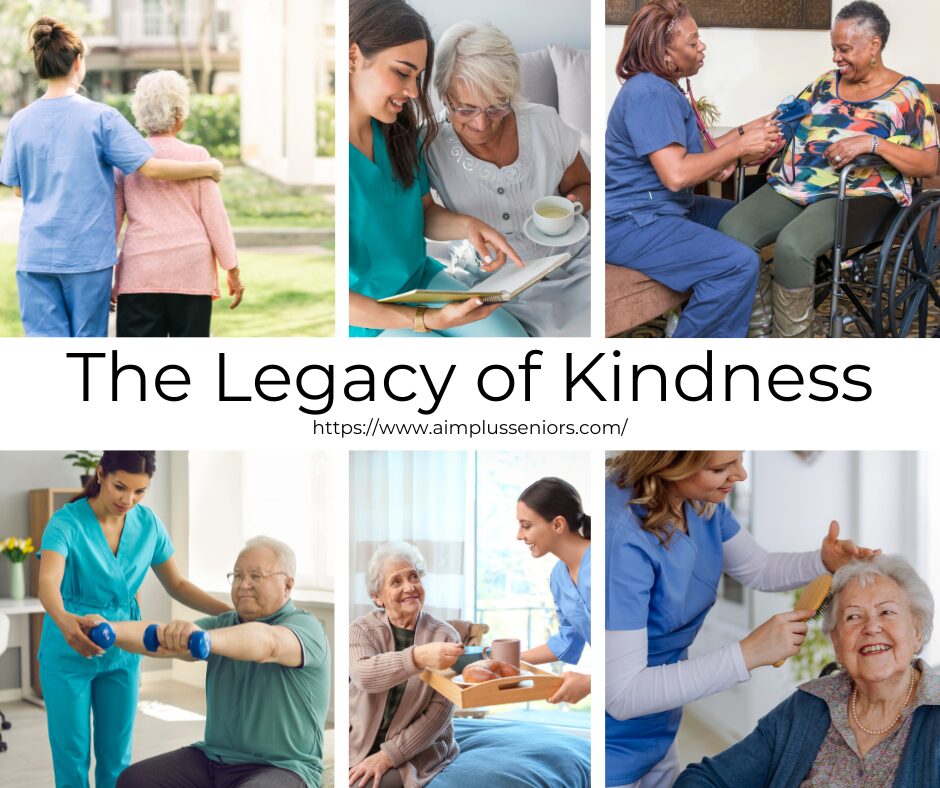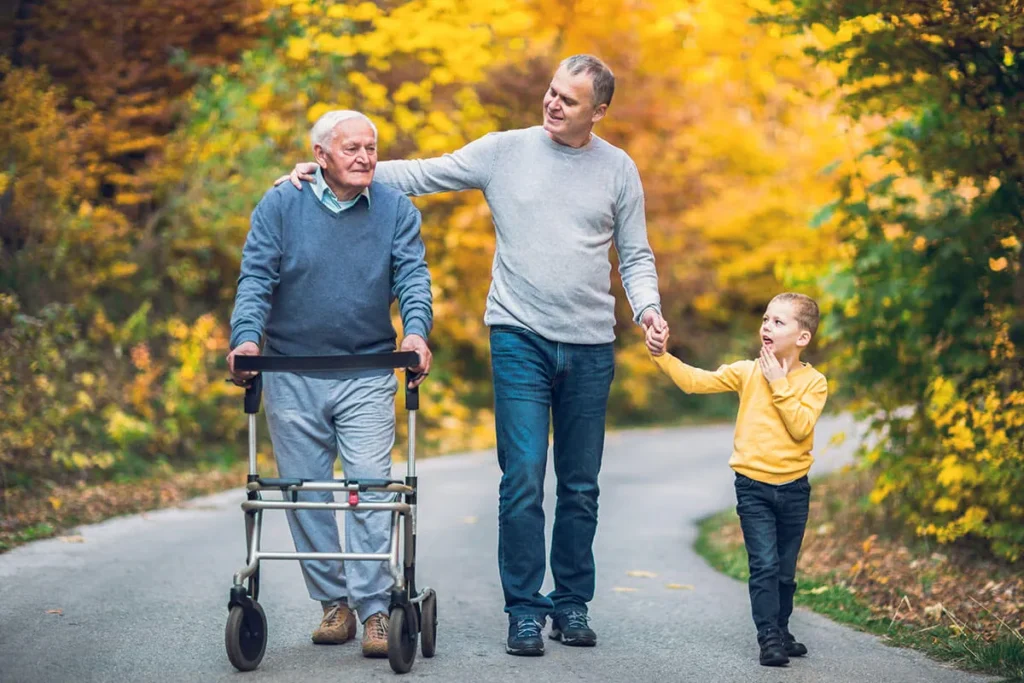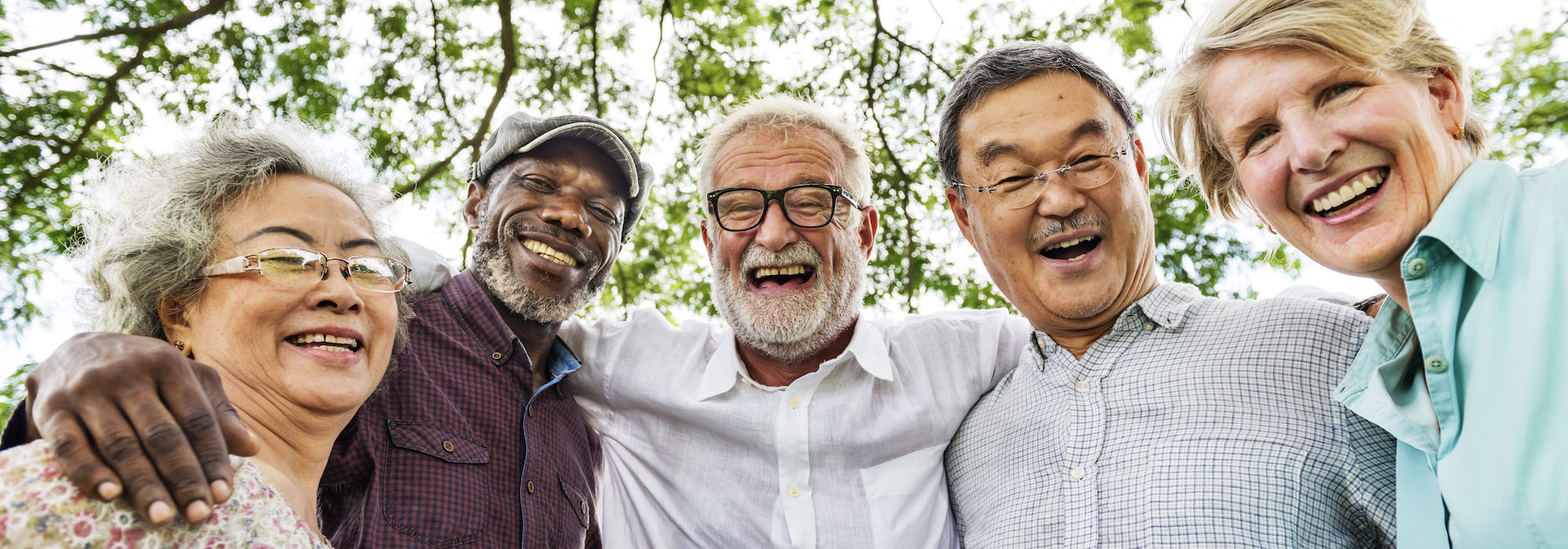How we treat our elders says a lot about who we are as individuals and as a society. Compassion, respect, and kindness are the pillars of a caring community, and nowhere is this more evident than in how we support our older generations. Senior care is not just about meeting physical needs; it’s about providing emotional support, and companionship, and preserving dignity in every aspect of their lives.

Kindness, whether through caregiving or simply being present for an elder in need, helps bridge the gap between generations. It’s a reminder that, no matter how much time has passed, everyone deserves to feel valued and loved.
-Aimplus Senior Services
Why Senior Care Matters
As people grow older, their needs change. Some might need help with daily activities, while others may face health issues that require more attention. Good senior care ensures they have access to the services and support they need, both physically and emotionally. When we focus on their well-being, we not only improve their quality of life but also strengthen the bonds within our communities. Learn more about senior care services.
Families, Communities, and Professionals
Families often play the biggest role in senior care, but it can be overwhelming to manage everything alone. That’s where communities and professional caregivers step in. Programs like in-home care services, adult day care centers, and assisted living facilities help relieve some of the pressure on families while making sure seniors get the support they need. It’s a team effort. Family Caregiving Roles and Impacts, Family involvement in health and medical tasks at home is not new, but it has become more common and is often far more complex than in the past. Older adults’ homes have become de facto clinical care settings where caregivers are performing an array of nursing or medical tasks once provided only by licensed or certified professionals in hospitals and nursing homes
Healthcare professionals, including doctors, nurses, and caregivers, are also crucial. They ensure that seniors’ medical needs are met and that they stay healthy as they age. But more than just treating physical conditions, they provide companionship and emotional support, which is just as important.

Providing for our elders is a responsibility that extends beyond family members; it’s a collective duty. Communities, healthcare providers, and caregivers all play an essential role in supporting the well-being of seniors. Establishing strong senior care systems, promoting aging in place, and ensuring access to proper healthcare all contribute to an environment where seniors can thrive.
The Role of the Community
Local communities can do a lot to support seniors. Community centers often offer activities that keep seniors active and engaged, while volunteers provide companionship and assistance with things like grocery shopping or running errands. In many cases, seniors just want to feel connected, and community programs help them maintain their social lives.
How to Connect Seniors to Their Community
As people age, staying connected with others becomes more important for their emotional well-being, mental health, and overall quality of life. Whether it’s through social activities, volunteer work, or digital engagement, seniors who feel connected to their community often report higher levels of happiness and health. Here are some ways to help seniors stay engaged and connected.
- Encourage Participation in Local Activities
Local community centers, churches, and libraries often host events specifically tailored for seniors. Activities like exercise classes, group discussions, and art workshops can help them stay active both mentally and physically. Some programs, such as SilverSneakers, offer fitness and wellness activities tailored for older adults. - Leverage Technology for Virtual Socializing
With advancements in technology, it’s easier than ever to stay in touch with friends and family. Help seniors learn how to use video call platforms like Zoom, FaceTime, or Skype. Social media sites such as Facebook can also be great ways for seniors to stay connected with family and friends or even join online groups that focus on their interests. According to a Pew Research study, over 40% of seniors are using smartphones, and digital literacy can greatly enhance their sense of community and belonging【source】. - Encourage Volunteer Opportunities
Many seniors feel a strong sense of purpose when they give back to the community. Volunteering can range from helping out at a local charity, tutoring young students, or joining groups like Meals on Wheels, where seniors can help deliver food to those in need. Studies have shown that volunteerism among older adults can reduce feelings of isolation while improving both physical and mental health. - Promote Intergenerational Programs
Seniors often enjoy sharing their wisdom and experiences with younger generations. Programs that bring together children and seniors for activities like storytelling, gardening, or tutoring provide meaningful opportunities for interaction. Intergenerational programs help bridge the age gap and foster a deeper understanding between different generations, contributing to a more connected society.】. - Create Safe Spaces for Open Dialogue
Many seniors face challenges like mobility issues, hearing loss, or cognitive decline, which can make it harder to connect socially. It’s important to create environments where seniors feel comfortable discussing their feelings or asking for help. Hosting regular family meetings or senior group discussions where they can express themselves openly can be a crucial step toward fostering a sense of belonging. - Transportation Assistance
Many seniors may find it difficult to participate in community activities due to transportation barriers. Offering transportation assistance through community programs or ride-sharing services specifically for seniors can help alleviate this challenge. Services like ITNAmerica offer affordable transportation for seniors, making it easier for them to engage with their community.
When we come together to care for our seniors, we create a better environment for everyone. It’s not just about helping those who need it today—it’s about setting an example for future generations. By sharing the responsibility for senior care, we show that we value our elders and want to ensure they live their later years with respect, support, and love. Learn more senior living options. Read this article 10 Best Hobbies for Seniors: Staying Engaged and Active Senior care is not just about meeting physical needs; it’s about providing emotional support, companionship, and preserving dignity in every aspect of their lives.




